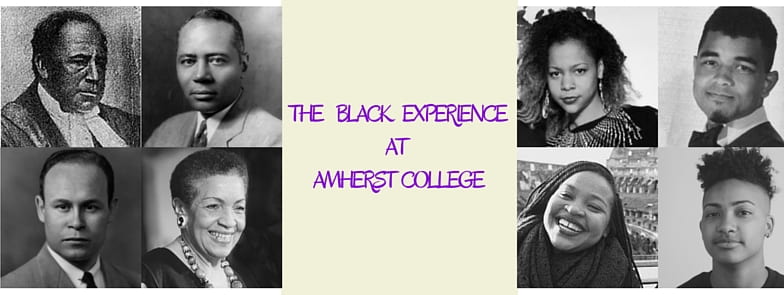MAY 10th, 2016
This class has allowed me to put a lot of the conversations and experiences I’ve had into an academic context for the first time ever. I first became interested in the topic of Africans at Amherst since I arrived here freshman year, but never have I had the opportunity to explore this topic until my final semester here. It is such a board topic to tackle but I primarily chose to take the plunge because firstly I did not ever consider myself part of “the black experience” at Amherst (whatever that may mean) because I am not African-American and so I don’t identify myself as black, and secondly, because during my time here, black Africans are not usually active in discourses about race on this campus. In fact it was the title “the black experience at Amherst” that I was initially hesitant toward but it made me question what I had always viewed as blackness and what that experience entailed. Because I don’t hang out in the Octagon, for example, does that mean I am not part of this experience? Because I am not African-American, where does that leave me? All of these questions are really large questions, deeply rooted in history, but this class gave me a start to answering them.
The alumni interviews and the Archives provided invaluable insight. Since there was no student group that catered to Africans when I arrived my freshman year, I sought to see why one was not created before. Was there not a need for one or was there already a space in which Africans could be supported? Without trying to completely generalize, I found that whether it was through other clubs on campus or in the Five-College area, or just by being amongst friends, or events put on in Drew House, previous Africans at Amherst could find areas of support. This of course may not be the case for everyone, and I would love that if someone wanted to continue this project, that they interviewed other Africans’ whose names weren’t provided by the alumni office.
It is also important to note that I had to be careful with what I defined as Africans. As I have seen in ACSU alone, many people who are born and raised in the U.S. hold an African identity with pride because their parents are from the continent. Africans could also be people like me or Stella (the other founder of ACSU) who are both U.S. citizens.
I learned that the term “black” is an extremely loaded term that comes with an inherited history for anyone that claims that identity. It is naïve to say that it is just a skin tone in the U.S. and I would urge anyone to think of the way that they use that term to identify people who may not even use it to describe themselves. With that said, black Africans are not outside of “the black experience” but are just a part of the larger experiences. The black experiences. How they see themselves in relation to that experience is purely a matter of personal experience as it is for everyone else.
I am so grateful to this course and especially my peers for this experience – allowing me to take on such an important task. Thankfully, because of this course, I was able to put ACSU items in archives for the first time since starting the group and I think this will solidify ACSU’s legacy and presence as an important space on this campus for African and Caribbean students alike to discuss issues such as blackness with a common lens of similar cultural backgrounds. Continuing a class like this, hopefully incoming Africans can have a better time at Amherst than I did my first 2 years simply because all of these factors are at play at Amherst, and this class allowed me to make sense of most of it- even if it is right before I leave.
-DMM
